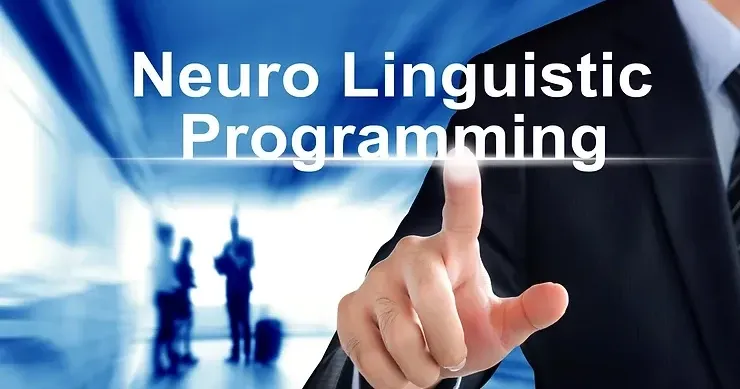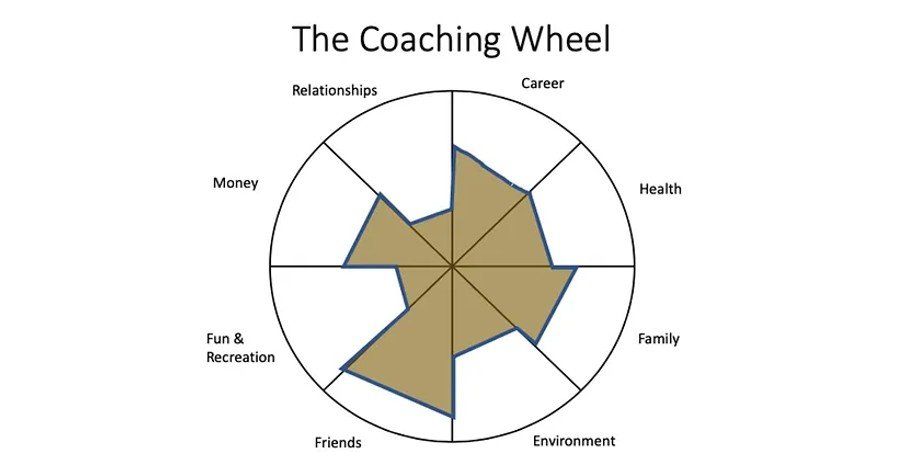NLP in Coaching
Neuro Linguistic Programming (NLP) Explained
What is NLP?
Neuro Linguistic programming is a psychological approach that involves analysing strategies used by successful individuals and applying them to reach a personal goal. It relates thoughts, language, and patterns of behaviour learned through experience to specific outcomes. NLP is a powerful tool that, when used in conjunction with coaching, can help create a powerful connection between the client and coach. NLP is shown to help clients connect with underlying behaviours, beliefs, patterns and thoughts.

Neuro-linguistic programming was developed in 1970 by John Grinder, a linguist, and Richard Bandler, an information scientist and mathematician along with other scientists. They believed it was possible to identify the patterns of thoughts and behaviours of successful individuals and to teach them to others. NLP was intended to help people communicate more effectively, learn faster, and develop personally to achieve a higher quality of life. They further developed NLP as a process to crystallize patterns behind brilliance in any field.
NLP has been used to treat a wide range of issues such as; Anxiety, Communication issues, Post-traumatic stress, Depression, Attention-deficit hyperactivity, Addiction, Schizophrenia, Obsessions and compulsions and borderline personality disorder.
Neuro-Linguistic Programming shows you how to take control of your mind, and therefore your life. Unlike psychoanalysis, which focuses on the ‘why’, NLP is very practical and focuses on the ‘how’.
What does NLP stand for?
N is for Neurol (brain)
The physical components as well as the mental and emotional components of our neurology. it refers to the mind or brain, particularly regarding how states of mind (and body) affect communication and behavior.
L is for Linguistics (communication/speech)
Linguistics pertains to the language that you use, and more specifically, how you communicate with others and more importantly, how you communicate with yourself. Language is the tool we use to gain access to the inner workings of the mind.
P is for Programming (function)
Perceiving your mind as your internal operating system, Programming is the way our past experiences, thoughts and emotions affect all areas of our lives. To someone trained, this would mean that you are living according to your programming, which consists of habitual thoughts, feelings, reactions, beliefs, and traditions.
Neuro-Linguistic Programming Techniques
Using NLP techniques can help you develop in areas of your life and contribute to improving your personal performance and understanding of how people function.
Here are some NLP techniques that are used by coaches:
Anchoring
This technique helps clients connect with their emotions that have been blocked in the past by creating an anchor to the stimulus. It is essential for pulling up a certain emotion, or putting yourself in a particular state of mind. It can be used on yourself, or on another person. It works by associating an emotion with a physical action and is called laying the anchor.
Meta Model
It is used to help you understand other people’s problems. It can also be used to help you help others understand their problems better. The goal is to deconstruct the conversation, to help you find the cause of the problem, as well as a solution to that problem. The goal is specific and clear communication, with the help of which lost contents of consciousness are rediscovered.
Rapport
As a coach, you want your clients to trust you. NLP serves as a perfect ingredient to create a sacred and trusted space with mirroring and rapport. The practitioner tunes into the person by matching their physical behaviours to improve communication and response through empathy. You can use this effect conversely to build a positive relationship, i.e. rapport, with someone. To do this, you mirror the behaviour of your counterpart.
Mirroring
Being good at mirroring will be very helpful as it's hard to dislike someone who knows how to do this. It is the mimicking of behaviours of the person with whom you are communicating. This simulation is done subtly and usually unconsciously. Ways to do this include copying someone’s speech patterns, body language, vocabulary style, pace, tempo, pitch, tone, and volume. This can help you build rapport and may decrease the chance of friction during the conversation. helpful in establishing rapport with clients and then partner empathetically. It is about creating a state of harmony in working together.
Pattern Interpretation
It is used to store words into the subconscious mind of a listener. This technique is another one that is great to combine with others. It involves the storage of keywords in your unconscious mind. It is used alongside Anchoring, this technique will allow you to receive a message which, for reasons unknown to you, bear a great significance.
NLP is a very powerful technique based on the power of your own mind. Some might call it ‘mind tricks’ but, by using these techniques and others developed by NLP practitioners, you can learn to take control of your mind and how you respond to the world.
To end here is a quote from Richard Bandler.
NEEDS ACTUAL QUOTE!!










